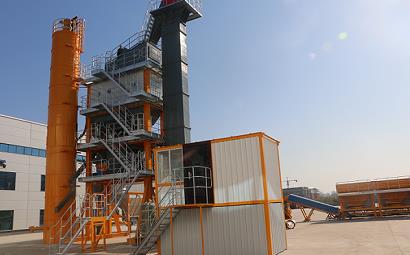What are the advantages of raw materials for emulsion bitumen equipment?
Compared with the traditional definition of hot and high-temperature recovery raw materials for emulsion bitumen machine, the method of recovery using normal temperature or low-temperature hot raw materials is cold patching. The common recovery raw materials are cold patching raw materials.
The difference between emulsion bitumen equipment concrete and general restoration raw materials is that it has bonding properties and loose characteristics. Compared with traditional hot patching, it avoids the traditional hot patching production processes such as square patching of round pits and brushing with bottom oil, and makes up for the disadvantages of traditional hot patching operations. The low temperature in winter and rainy season prevents construction, which saves the inconvenience of setting up pots and stoves to heat the bitumen on site.


This kind of material can be used to restore various types of floor coverings in any weather and geographical environment at operating temperatures between -30°C and 50°C. It will not pollute air and groundwater, and can be replenished as it breaks down. After recovery, Urban traffic can be restored by simple destructive compaction, human resource compaction, or tire rolling.
Its strong anti-aging and bonding properties make the restored pavement less likely to fall off or crack, and its service life can be more than five years.
The raw materials for emulsion bitumen equipment currently on the market refer to discolored bitumen, sand and gravel of various colors, and dyes that are mixed and stirred at a unique temperature to form bitumen mixtures of various colors, which are then paved, rolled, and mixed. It is rolled and recycled to form a colorful asphalt road concrete pavement with certain tensile strength and road characteristics, also called emulsion bitumen equipment.
 Albanian
Albanian  Russian
Russian  Arabic
Arabic  Amharic
Amharic  Azerbaijani
Azerbaijani  Irish
Irish  Estonian
Estonian  Odia (Oriya)
Odia (Oriya)  Basque
Basque  Belarusian
Belarusian  Bulgarian
Bulgarian  Icelandic
Icelandic  Polish
Polish  Bosnian
Bosnian  Persian
Persian  Afrikaans
Afrikaans  Tatar
Tatar  Danish
Danish  German
German  French
French  Filipino
Filipino  Finnish
Finnish  Frisian
Frisian  Khmer
Khmer  Georgian
Georgian  Gujarati
Gujarati  Kazakh
Kazakh  Haitian Creole
Haitian Creole  Korean
Korean  Hausa
Hausa  Dutch
Dutch  Kyrgyz
Kyrgyz  Galician
Galician  Catalan
Catalan  Czech
Czech  Kannada
Kannada  Corsican
Corsican  Croatian
Croatian  Kurdish (Kurmanji)
Kurdish (Kurmanji)  Latin
Latin  Latvian
Latvian  Lao
Lao  Lithuanian
Lithuanian  Luxembourgish
Luxembourgish  Kinyarwanda
Kinyarwanda  Romanian
Romanian  Malagasy
Malagasy  Maltese
Maltese  Marathi
Marathi  Malayalam
Malayalam  Malay
Malay  Macedonian
Macedonian  Maori
Maori  Mongolian
Mongolian  Bengali
Bengali  Myanmar (Burmese)
Myanmar (Burmese)  Hmong
Hmong  Xhosa
Xhosa  Zulu
Zulu  Nepali
Nepali  Norwegian
Norwegian  Punjabi
Punjabi  Portuguese
Portuguese  Pashto
Pashto  Chichewa
Chichewa  Japanese
Japanese  Swedish
Swedish  Samoan
Samoan  Serbian
Serbian  Sesotho
Sesotho  Sinhala
Sinhala  Esperanto
Esperanto  Slovak
Slovak  Slovenian
Slovenian  Swahili
Swahili  Scots Gaelic
Scots Gaelic  Cebuano
Cebuano  Somali
Somali  Tajik
Tajik  Telugu
Telugu  Tamil
Tamil  Thai
Thai  Turkish
Turkish  Turkmen
Turkmen  Welsh
Welsh  Uyghur
Uyghur  Urdu
Urdu  Ukrainian
Ukrainian  Uzbek
Uzbek  Spanish
Spanish  Hebrew
Hebrew  Greek
Greek  Hawaiian
Hawaiian  Sindhi
Sindhi  Hungarian
Hungarian  Shona
Shona  Armenian
Armenian  Igbo
Igbo  Italian
Italian  Yiddish
Yiddish  Hindi
Hindi  Sundanese
Sundanese  Indonesian
Indonesian  Javanese
Javanese  Yoruba
Yoruba  Vietnamese
Vietnamese  Hebrew
Hebrew  Chinese (Simplified)
Chinese (Simplified)







